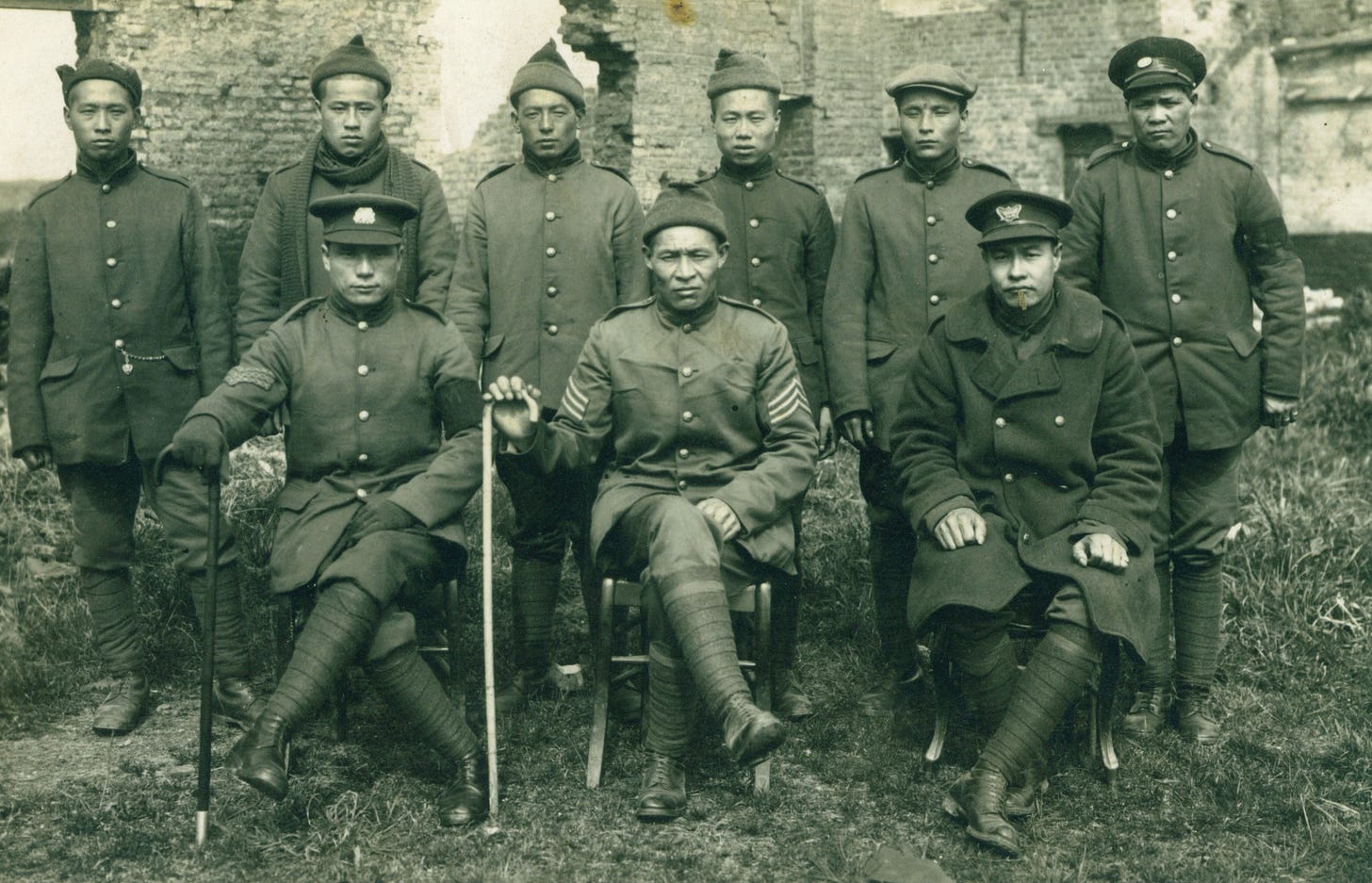The Chinese Labour Corps were formed in 1916; by this stage of the war the British were running low on manpower to provide labour work behind the lines - everything from building the infrastructure necessary to make war, to loading and unloading stores and equipment. Manpower was found in every corner of the British Empire but it was still not enough, so following the example of the French, the British government recruited men direct from China under a form of contract to provide the labour required. More than 100,000 served in the Chinese Labour Corps, the first men setting sail from China in January 1917. Before the Armistice they only served away from the battlefield, with a handful of casualties caused by shell fire. They suffered badly with Influenza in 1918/19 but were kept in France and Flanders to help clear up the battlefields once the war was over and help in the search for the dead, and construct the permanent war cemeteries. The last men of the Corps returned to China in 1920, although some took their discharge in Europe and descendants still live close to the some of the old battlefields. Nearly 2,000 men of the Chinese Labour Corps died and are buried in cemeteries maintained by the Commonwealth War Graves Commission.
I bought this image along with several others at a street market in Kemmel, Belgium, back in the early 1990s. They were in a box of old postcards found in a Belgian house. This image shows a group of NCOs sitting in front, with some workers from the Corps behind. It gives a good idea of the uniforms and badges worn by the Corps, and the setting is a ruined building in Flanders where this team is helping to clear the battlefield of munitions and the detritus of war, along with recovering the dead for burial in the cemeteries.
When I was buying the postcards an elderly Belgian gentleman tapped me on the shoulder and pointed to the images. "Chinese.", he said, "Very dangerous!" They certainly look a very tough group!





Dangerous ? Exactly. I’ve read stories of dread for the Chinese labourers ordered for household duties after a battle. The ladies were afraid to let them into their homes.